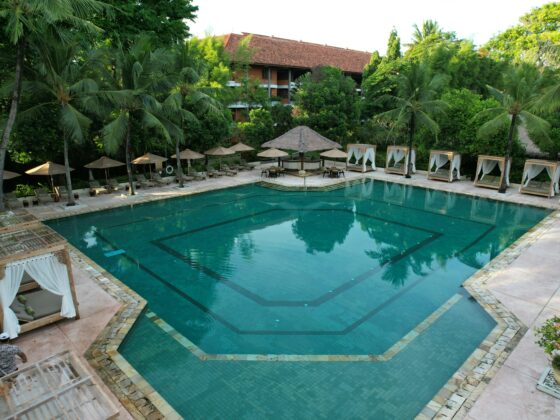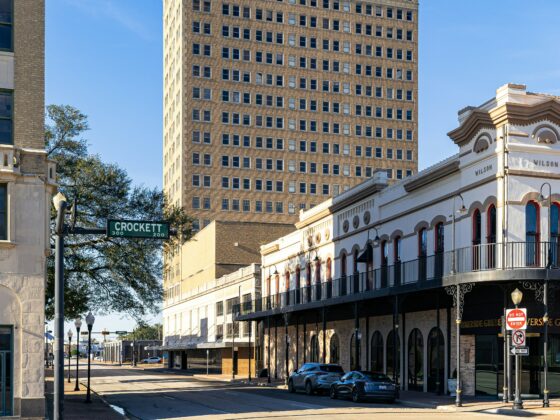Beyond the check-in desk, a digital revolution is fundamentally reshaping hospitality, demanding leaders rethink core systems like the PMS. Consequently, decisions around PMS and distribution strategies are fundamental to competitiveness, guest experience, and profitability. Zsuzsanna Albrecht explores common pitfalls, emerging trends, and key strategies in this exclusive interview. Discover invaluable insights on tech selection, future-proofing, and distribution for sustainable growth.
Takeaways
Define Workflows First: Define future workflows with teams before selecting tech like a PMS for better alignment.
Integration is Foundational: Prioritize open APIs and seamless data flow; fragmented stacks cause inefficiency and silos.
Think Total Cost, Not Just Price: Evaluate total cost of ownership (updates, support, integrations, scalability), not just the initial price.
Common mistakes in tech selection
What common mistakes do hotels make when selecting a Property Management System (PMS), and how can they avoid them?
One of the biggest mistakes when choosing a new PMS is selecting the system before clearly defining future workflows. Decisions made without involving the operational team often result in poor alignment. Before committing, check whether the system meets future legal, security, and integration standards; don’t settle for “API available” without confirming full data mappability.
Start fresh: avoid simply transferring old processes. Prioritize critical features and accept that no system will cover everything out of the box. Modular add-ons or third-party tools can close the gaps.
Strong project ownership is key. Assign a dedicated lead, establish clear responsibilities, document decisions, and stay adaptable. Delays happen; what matters is how the team responds.
The cheapest option often ends up being the most expensive if it fails to deliver sustainable gains in efficiency, guest satisfaction, or revenue. Zsuzsanna Albrecht
Cost vs. Efficiency
How can hotels balance cost and operational efficiency when investing in new technology without sacrificing productivity and guest experience?
When investing in hotel tech, the goal isn’t to cut costs at all costs, but to maximize long-term value. The cheapest option often becomes the most expensive if it fails to deliver sustainable gains in efficiency, guest satisfaction, or revenue.
Look beyond upfront pricing. Consider total cost of ownership, including updates, support, and integrations. What seems affordable now may scale poorly later.
Automation is a key ROI driver. Tools that handle routine tasks free staff to focus on guests, improving service quality, speed, and flexibility.
Guest experience drives revenue. Smoother stays lead to better reviews, more direct bookings, and lower dependency on OTAs. Service isn’t just a cost center; it’s a growth engine.
Smart tech investments weigh full impact, not just price tags. Efficiency, scalability, and guest value should guide the decision.
Importance of integrations
Why are integrations crucial in a hotel tech stack, and what should hoteliers look for to ensure systems communicate effectively?
System integration isn’t optional; it’s foundational. The PMS must be the central hub, with clean, real-time data flow across tools. Without it, inefficiencies and silos follow.
Open APIs and clear interface architecture are key. Define one master system and ensure others sync to it. Test integrations thoroughly, don’t rely on vendor promises alone.
Talk to peers, request interface docs, and confirm the stack supports real-world workflows.
Well-integrated systems boost service, team efficiency, and agility, without the drag of manual work.
Evolving role of GDS
Given today’s diverse booking channels, how is the role of GDS evolving, and how should hotels strategically approach distribution?
GDS still matters, especially for corporate travel, where negotiated rates and integration with booking tools remain essential. While the rise of direct, OTA, and metasearch channels raises questions about their relevance, this isn’t about replacement but building a hybrid distribution model.
Direct bookings should be a top priority. They offer better margins, control over the guest relationship, and access to first-party data. Tools like smart booking engines, loyalty programs, and dynamic pricing help strengthen this channel.
The ideal mix depends on your market. A business hotel may rely more on GDS, while a resort might benefit from OTAs, metasearch, or social engagement. GDS are far from obsolete; they’re one part of a balanced strategy. The key is combining traditional and modern tools to reach your audience while maximizing direct revenue.
Digital guest journey
How do PMS and distribution systems specifically support and improve the guest experience throughout the digital journey’s various touchpoints?
Today’s guest journey spans many digital touchpoints. A well-integrated PMS ensures consistency, personalization, and automation across the entire experience. It syncs bookings in real time, powers targeted offers, and automates pre-arrival tasks like check-in and upselling. On-site, it enables mobile access, real-time service updates, and personalized in-room settings.
Guests interact via app, chat, or kiosk, driving convenience and efficiency. Check-out is seamless with mobile payments and instant invoices.
Post-stay, the PMS drives feedback, tracks sentiment, and powers CRM-driven loyalty campaigns with personalized offers and dynamic pricing.
Future-Proofing technology
How can hoteliers effectively future-proof their tech stack, ensuring systems stay adaptable and valuable over time?
In today’s fast-paced hospitality landscape, future-proofing your tech stack is essential. It means choosing scalable, flexible systems that can adapt to evolving guest expectations, digital trends, and operational needs.
Rigid, closed platforms create risk leading to costly migrations, data silos, and lost competitiveness. Instead, prioritize cloud-based, modular solutions with open APIs and industry-standard integrations (e.g., HTNG, OpenTravel).
Automation is critical, from pricing and housekeeping to personalized guest communications, freeing staff to focus on high-value service. Embrace low/no-code tools to boost agility and reduce IT dependency.
Long-term success also depends on digital fluency. Empower teams through training and change management to leverage tech confidently.
Future-proofing means planning for change, not reacting to it. Invest in flexible, integrated platforms today to scale and stay competitive tomorrow.
Key tech trends
Which hospitality tech trends should operators watch now, and what future innovations will be most transformative for operations and guest experience?
1. AI & Automation: Personalization at scale
AI is transforming hospitality, from GPT-powered concierges and smart upselling to real-time revenue optimization. Automated tools handle guest requests, dynamic pricing, and housekeeping schedules, boosting efficiency and revenue with minimal manual input.
2. Contactless & Mobile-First experiences
Mobile check-in, keyless entry, and biometric ID are becoming standard. Voice assistants and hotel apps now control in-room settings, while kiosks and digital concierges streamline service and elevate guest satisfaction.
3. Smart Hotel & IoT Automation
IoT tools enable energy efficiency, predictive maintenance, and data-driven personalization. From smart thermostats to occupancy sensors, hotels gain cost savings and better operational control.
4. Hyper-Personalization & CRM
Advanced CRMs unify guest data to deliver timely, relevant offers and loyalty rewards. AI-driven sentiment analysis helps preempt issues and fine-tune service quality.
5. Next-Gen payments & Blockchain
Contactless, biometric, and tap-to-pay options simplify transactions. Blockchain-based loyalty programs offer transferable, flexible rewards and open up new value channels.
6. Robotics in operations
Robots are now used for delivery, luggage, cleaning, and even bartending. Back-of-house AI optimizes food usage and inventory, aligning with cost and sustainability goals.
7. Sustainability tech
AI and IoT-powered systems reduce energy waste and enable smart resource use. Guest-facing tools promote eco-conscious choices, while loyalty programs reward sustainable behavior.
Hospitality is being reshaped by tech. Future-ready hotels will embrace smart, modular tools that enhance operations, boost personalization, and drive sustainable, guest-centric growth.
Lessons from consulting
Based on your consulting, what key lessons and examples can you share about optimizing hotel technology for success?
One of the biggest lessons in hotel tech projects: implementation is always more complex than it seems. What looks like a simple switch, like adopting a new PMS, can turn into a resource-heavy challenge without proper scoping and strategy.
Successful tech adoption starts with a structured needs assessment, not just software demos. Map out pain points, define goals, involve cross-departmental teams, and understand the full guest journey. Only then can tech decisions truly address real issues.
Take the case of a mid-sized city hotel with siloed tools for bookings, comms, housekeeping, and payments. Delays and data inconsistencies led to poor guest satisfaction. What seemed like a PMS issue was actually a broader integration failure.
We led a workflow analysis and recommended a phased switch to a modular, cloud-based PMS with open APIs. This allowed smooth integration with their CRM, channel manager, and payment systems. The result: reduced admin time, better upselling, and higher guest satisfaction through automation and real-time personalization.
Don’t chase features, solve business problems. Align tech with strategy, involve your teams early, and invest in scalable, connected tools that drive real operational and guest experience value.
Don’t chase features—solve business problems. Align tech with strategy, involve your teams early, and invest in scalable, connected tools that drive real operational and guest experience value. Zsuzsanna Albrecht
PMS in the modern landscape
How is the role of the PMS evolving in the modern hotel environment, particularly in relation to specialized systems?
The PMS remains the operational heart of hotel management, but its role is evolving. No longer a standalone, all-in-one system, today’s PMS is a modular, open platform designed to integrate with specialized tools like CRMs, RMSs, messaging apps, and payment gateways.
This shift enables hotels to build flexible, customized tech stacks, avoiding vendor lock-in while ensuring consistent, synchronized operations across all systems. The PMS now acts as the data and integration backbone, not the one-size-fits-all solution. At the same time, the move to cloud-native, mobile-first platforms supports remote access, faster updates, better security, and greater scalability, which are key to modern hotel operations.
The PMS is still core, but now it’s connected, agile, and built for integration, empowering hotels to adapt quickly and deliver better guest experiences.
Upgrading with minimal disruption
What practical advice helps hotels upgrade their tech stack smoothly, maintaining business continuity and productivity during transitions like a new PMS implementation?
Upgrading a hotel’s tech stack, especially core systems like a PMS, requires a phased, structured approach to avoid disruption and maintain operational continuity. Start with backend integration and secure data migration. Ensure clean transfers of reservations, guest profiles, and rate structures before moving forward. Next, onboard departments one at a time, front office, housekeeping, and accounting, with targeted training and testing. This gradual rollout reduces risk and supports smoother adoption.
Guest-facing features like mobile check-in or messaging should come last, once internal systems are stable and staff are confident. Crucially, involve employees early. Their input shapes priorities, and early training builds engagement and confidence for go-live. In short: treat tech upgrades as strategic projects. With smart phasing, clean data, and team alignment, hotels can transform operations with minimal friction and maximum impact.
Final words
Zsuzsanna highlights that success requires strategic planning, integration focus, and future-proofing. Avoid pitfalls like choosing tech before defining workflows or ignoring total ownership costs. Embracing automation, prioritizing guest experience, and leveraging data via integrated systems are now essential operational components. Navigating distribution or upgrades needs a thoughtful, phased team approach for efficiency, guest satisfaction, and sustained competitive advantage.
About Shiji Group
Shiji is a global technology company dedicated to providing innovative solutions for the hospitality industry, ensuring seamless operations for hoteliers day and night. Built on the Shiji Platform—the only truly global hotel technology platform—Shiji’s cloud-based solutions include property management system, point-of-sale, guest engagement, distribution, payments, and data intelligence for over 91,000 hotels worldwide, including the largest hotel chains. With more than 5,000 employees across the world, Shiji is a trusted partner for the world’s leading hoteliers, delivering technology that works as continuously as the industry itself. That’s why the best hotels run on Shiji—day and night. While its primary focus is on hospitality, Shiji also serves select customers in food service, retail, and entertainment in certain regions. For more information, visit shijigroup.com.








